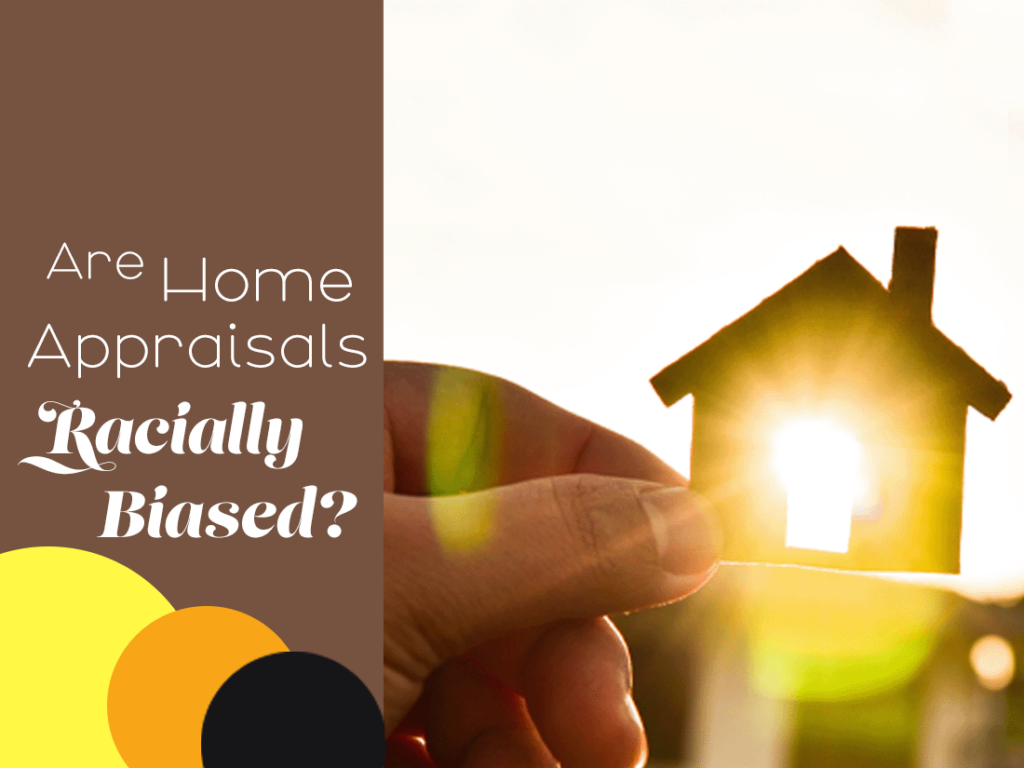What do we call a 23% drop in home valuation for Black neighborhoods versus comparable white neighborhoods? This is a glaring case of racial bias! Here are 4 ways to fight back.
Recent cases where Black households have been lowballed reveal a system that can be riddled with discrimination.
In what seemed to be a bizarre experience, a California couple was lowballed by $500K on their home valuation, only to have it valued 50% higher when pictures of a white family replaced their own during a second evaluation. This now has a name…whitewashing!
In another case of changing your family’s identify, an Ohio couple’s home was undervalued by near $100K only to have their home correctly valued after “whitewashing” their home for a second evaluation.
Seemingly on repeat, another couple in Baltimore is taking to court a home appraisal company after their home was valued nearly $280,000 more after removing family photos and having a white colleague stand in during the second appraisal.
Yet another example demonstrates disparity as a wealthy Black couple have their home appraised only to be communicated an estimated worth $300K less than what they paid six years earlier. The wealthiest zip codes for Black Americans, some of the wealthiest in the country, do not go unaffected. This is a universal phenomenon!
Andre Perry, a senior fellow for the Brookings Metropolitan Policy Program has stated that, “Black neighborhoods are undervalued by $48,000 per home on average, amounting to $156 billion in cumulative losses.” These sums are diverted from other forms of critical life aspirations for our community like education and business creation. Modern forms of redlining are inevitable when over 97% of home appraisers are white and bias is rarely going to be addressed in such homogenous spaces.
These inequities have far-reaching implications for our community’s ability to create generational wealth and capitalize on the mechanism that has compounded white wealth… time. The expanding #RacialWealthGap can be addressed through policy initiatives and our collective education.
These inequities have far-reaching implications for our community’s ability to create generational wealth and capitalize on the mechanism that has compounded white wealth… time. The expanding #RacialWealthGap can be addressed through policy initiatives and our collective education.
Here are 4 ways to fight back against a discriminatory appraisal experience:
- Seek a Second Appraisal | When the initial appraisal is far below expectations, request a second appraisal. The reality is that your lender should either work with the existing appraiser to correct the error or seek a new appraisal if the current appraisal is discriminatory. In first time homebuyers’ education we can start to protect our interests as we start our homeownership journey. Here we can inform our community on how to seek a second appraisal.
- Report Discriminatory Practices | Anti-discrimination policies make appraisal discriminatory practices illegal under federal law. Strict enforcement and re-enforcement of these can work to improve the disparate experiences Black homeowners face compared to white homeowners in the appraisal process. If you experience it, file a complaint with your lender!
- Reduce Barriers To Entry | Push for more diversity in the industry for home appraisals. This can dramatically change the experience of Black households as we access professionals who reflect our communities.
- Improve Training | Push for anti-bias and fair housing training in the industry, public and private. This can work to challenge implicit bias, defined as attitudes and beliefs that are held without knowledge or awareness.
Home appraisals can be racially biased! These examples are more than ample evidence to attest to this reality. Share this resource and other resources with your family and friends to help equip them against bias during the appraisal process. As we get #FinanciallyLit, we can combat historical inequity and accelerate our pursuit of building wealth, individually and as a community!


















